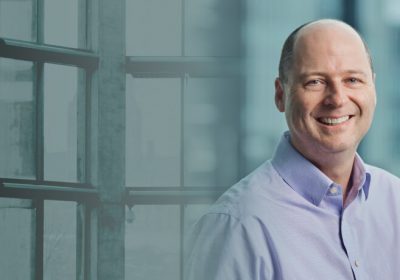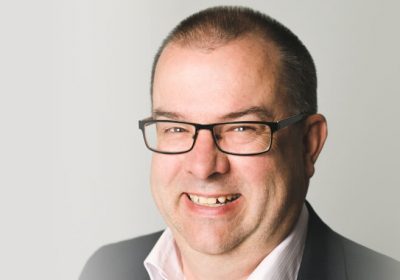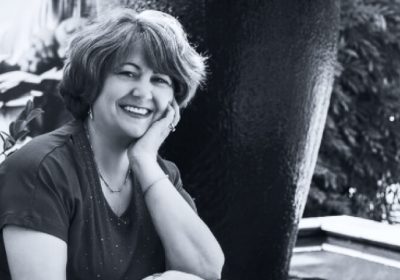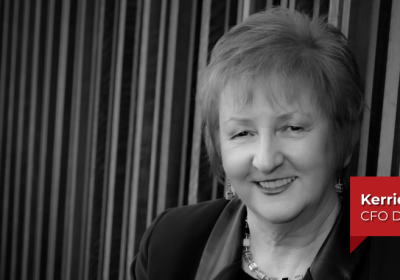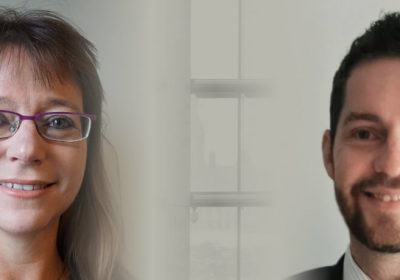
- Author: Kate Jones
- Posted: October 26, 2022
Navigating tricky waters – A year in review with Ashley Davies at Slyp
It’s been a year since Ashley Davies took on the role of CFO at receipts fintech Slyp. Online reports of his appointment described him as a “PayPal heavyweight” and he has well and truly lived up to expectations.
Davies came on board at Slyp with a mission to upscale the business. Here, he describes how he achieved $25 million in Series A funding when the COVID pandemic was still shaking up the business landscape and how he is preparing for 2023 in a world of economic uncertainty.
Jumping in the deep end
Davies was working at PayPal in Silicon Valley when he first met Slyp co-founders, then workmates, Paul Weingarth and Spiro Rokos.
“Paul headed up the large enterprise sales team there and Spiro headed up the technology team, and I was the finance lead,” he said.
“So I was very close to the Slyp journey from inception. I’ve been following it from afar and really felt that it was a mission which I was very keen to be involved in.”
Davies worked at PayPal for almost seven years, including close to two years as CFO at Venmo after the mobile payments app was acquired by the fintech giant. After returning home to Australia and spending three years leading finance at global fintech platform Intuit, Davies left for Slyp.
The jump from the world of global fintechs to a home-grown startup was just what he was looking for.
“It was a very different mind shift,” Davies said.
“There are some huge positives in doing it. I mean you think about the obvious things of moving from a multinational to a smaller startup, which is in one time zone and you’re not caught up in the wheels of bureaucracy and too many meetings.
“In a startup you’re able to help shape that culture. So as part of my role, I also oversee the people and culture function that reports in to me.”
Slyping into gear
Davies hit the ground running. In the first few months of starting at Slyp he was joining Weingath, Rokos and fellow co-founder Mike Boyd in investment meetings. The group raised $25 million in Series A funding with backers including former PwC boss Luke Sayers and Catch Group founders Gabby and Hezi Leibovich.
It came after Slyp secured investment from NAB, ANZ and Westpac in 2018 and then CBA in 2020, making it the first Australian fintech to nab the support of the big four banks.
Looking back, Davies said it was a surreal time to join the team.
“It was obviously a tricky year for us all coming out of lockdown and it was an interesting part of my first few months at Slyp really, because we did the first three or four months entirely virtually,” he said.
“By and large, those first three or four months of my tenure was really doing our Series A. And once we landed that it was really around ensuring that we were setting the company up for a real strong growth trajectory into 2022 and putting all the parts in place to deliver on our promise to the Australian customers.”
Getting startup strong
The cash injection was used to double the Sydney-based startup’s workforce to 54 staff and to establish a new loyalty product to run alongside the company’s primary product, Slyp Smart Receipts.
Smart Loyalty, which is planned to launch before the end of year, connects banking payment apps to retail loyalty programs.
“As you can imagine, retailers and the banks really love this because it makes for a much more sticky experience for the customer and keeps you in the banking app,” Davies said.
“It keeps you wanting to bring their card to, what we call, front of wallet. So you’ll get a one-time notification when you make that transaction with your NAB card saying, ‘Hey, we just realised that you shopped at X merchant and you have a loyalty program with them. Would you like to connect that loyalty right now with a one-time transaction?’.”
In addition to preparing for Series B funding, Davies said he hopes to boost customer numbers in the future. It’s a goal he says should become more realistic once the Slyp app goes live with all four banks (currently it is live with just the NAB).
“I’d say our customers right now are numbered in the hundreds of thousands in terms of people who are live with Slyp,” he said.
“Obviously once we launch with some more of Australian’s largest banks in the forthcoming years, and we are in integration with another one of the big four and we will look to look to go live very soon. Once that happens, we really will be in the hands of one in two Australians.”
Looking ahead
Like any business still smarting from the challenges of the pandemic, Slyp now faces new hurdles in the form of macroeconomic issues. Interest rates have risen for six consecutive months in Australia and globally, the invasion of Ukraine continues to put price pressure on commodities.
For Davies, it’s a time to exercise a degree of spending caution.
“There’s a multitude of things, but I would encapsulate them as one – being very conscious around where we deploy our capital,” he said.
“We’re very conscious that those are investment dollars that people put into Slyp and we want to ensure that we are optimising every dollar we have to get the best ROI out of that.
“Whether that’s from hiring folks, to being conscious around where we deploy opex elsewhere.
“And two – I really want to encourage the team when we’re looking for software solutions or software, which we are using in-house, to try and use Australian first where we can.”
Despite the economic uncertainty ahead, Davies is buoyed by the fact that other startups are winning over investors. He cites the example of Sonder, a workplace wellness technology start-up that closed a $35 million funding round last month.
Davies said CFOs should be optimistic going forward because there’s still investment money on the table.
“I think the key is that investment is forthcoming where there is a great growth story and where there is opportunity for mass investment dollars to deliver,” he said.



